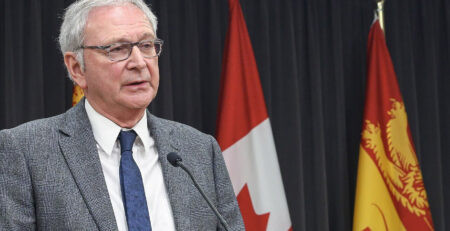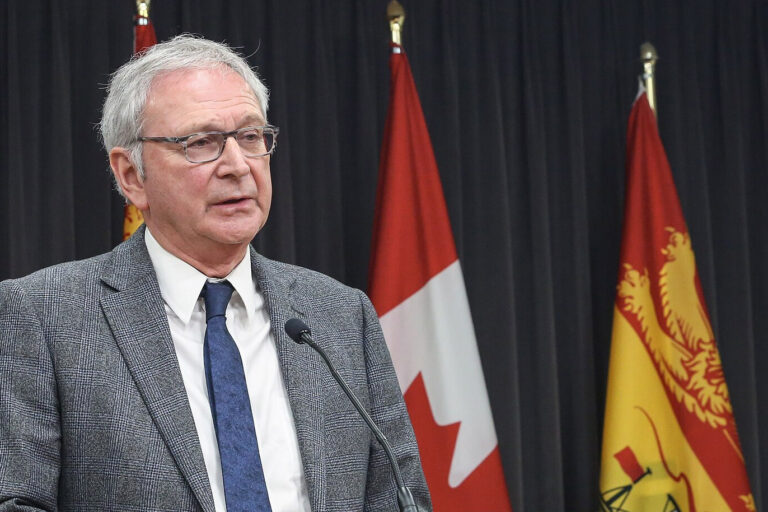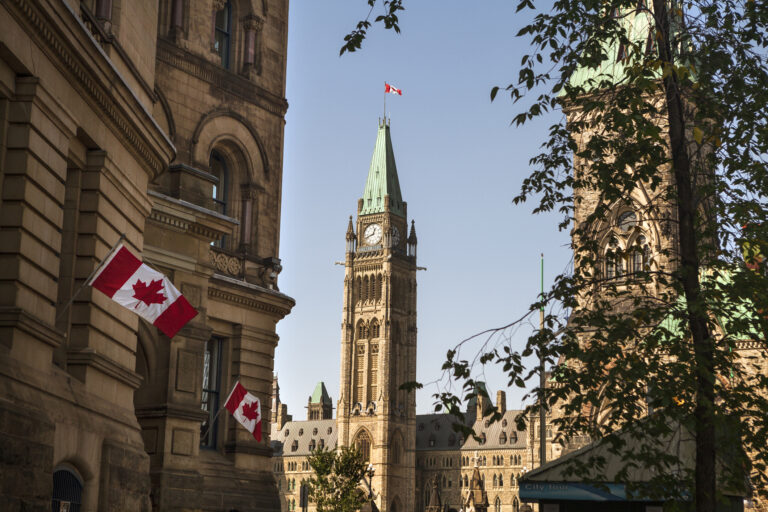John Carpay – The Epoch Times
In August of 2023, the UR Pride Centre for Sexuality and Gender Diversity filed a court application seeking to strike down Saskatchewan’s “Use of Preferred First Name and Pronouns by Students” policy. The policy requires parental consent when children under the age of 16 wish to use opposite-sex names and pronouns at school, referred to as “social transition.” This “social transition” can lead to children receiving puberty blockers, opposite-sex hormones, and eventually life-altering surgeries that will render them permanently infertile.
In September, UR Pride persuaded the Saskatchewan Court of King’s Bench to grant an interim injunction to suspend the policy pending a full court hearing, which would not take place until February of 2024. UR Pride claims that the parental consent policy will violate children’s charter rights and will irreparably harm them.
Saskatchewan Premier Scott Moe has introduced Bill 137, which uses Section 33 of the Canadian Charter of Rights and Freedoms, the notwithstanding clause, to keep his government’s parental rights policy in place, following the September court decision to suspend the policy temporarily, or any future court rulings to strike it down. Section 33 gives our federal Parliament and provincial legislatures the ability, through the passage of a law, to override a judge’s interpretation of certain charter rights for a renewable five-year term.
Opponents of Section 33 argue that politicians should not be allowed to violate our rights and freedoms. However, Section 33 is not all that different from Section 1 of the charter, which allows judges to override our charter rights and freedoms in much the same way that Section 33 allows politicians to do so. Section 1 empowers judges to approve and endorse the government’s violation of constitutional rights, if a judge in his or her personal opinion deems the violation to be reasonable and “demonstrably justified.”
In theory, Section 1 requires judges to force governments to justify any violation of charter rights and freedoms “demonstrably,” with persuasive evidence. According to the test laid down by the Supreme Court of Canada in R. v. Oakes (1986), governments must show that their violations of charter freedoms are actually doing more good than harm. Theory aside, judges have repeatedly used Section 1 to rubber stamp the government’s lockdowns and vaccine passports. This necessarily raises the question: who is more competent to understand, interpret, and protect our rights and freedoms—politicians or judges?
In striking down the Saskatchewan policy, the court seems to have assumed that all parents are somehow dangerous, abusive, and untrustworthy. The court believes that all parents should be kept in the dark when their own children embark on a dangerous and futile quest to become the opposite sex.
The court also assumes that the best way (or the only way) to help gender-confused children is to affirm any and all steps that a child may wish to take to adopt opposite-sex pronouns, names, clothing, etc.
This completely ignores the success achieved by Dr. Kenneth J. Zucker, who helped hundreds of children and teenagers to accept their biological sex while working for decades at Toronto’s Centre for Addiction and Mental Health as head of its Gender Identity Service. The vast majority of gender-confused children, when protected from political activists and ideologues and when supported by their parents, will be at peace with their sex by the time they reach the age of 18. Dr. Zucker saved these children from a lifetime of drugs and surgeries that would need to be administered in the futile quest to acquire a biological body of the opposite sex.
UR Pride claims that Saskatchewan’s new policy violates the rights of gender-diverse students under the Charter of Rights and Freedoms. But in fact, children do not enjoy privacy rights vis-à-vis their own parents. Because children are not adults, they legitimately have no right to drive, vote, get married, join the military, purchase liquor, get a tattoo, etc. Children are entitled to the love, support, guidance, and nurturing of their own parents. When parents are kept in the dark, they are severely hindered in providing these necessities. Claiming that children have adult rights is a perversion of the charter.
Placing great reliance on testimony from Dr. Travers, a Simon Fraser University sociology professor who uses “they/them” pronouns, the court appeared to embrace fear-mongering that children who are not “affirmed” in their “social transition” are at risk of suicide. This ignores a comprehensive Swedish study showing that “fully transitioned” transgender adults, after having had healthy body parts removed and new artificial ones created, have higher suicide rates than the general population.
The court considered irreparable harm to children only in relation to the very small number of children who might have truly abusive parents. Sadly, the court ignored the irreparable harm that is likely to result from keeping all parents in the dark, disregarding harm to children who are pressured, manipulated, and misinformed by political activists at school.
All in all, the court provided no compelling reason as to why or how it benefits children to keep all parents (not just the very small number of abusive ones) in the dark about their own children.
The Saskatchewan government should be applauded for using charter Section 33 to opt out of this court ruling.









